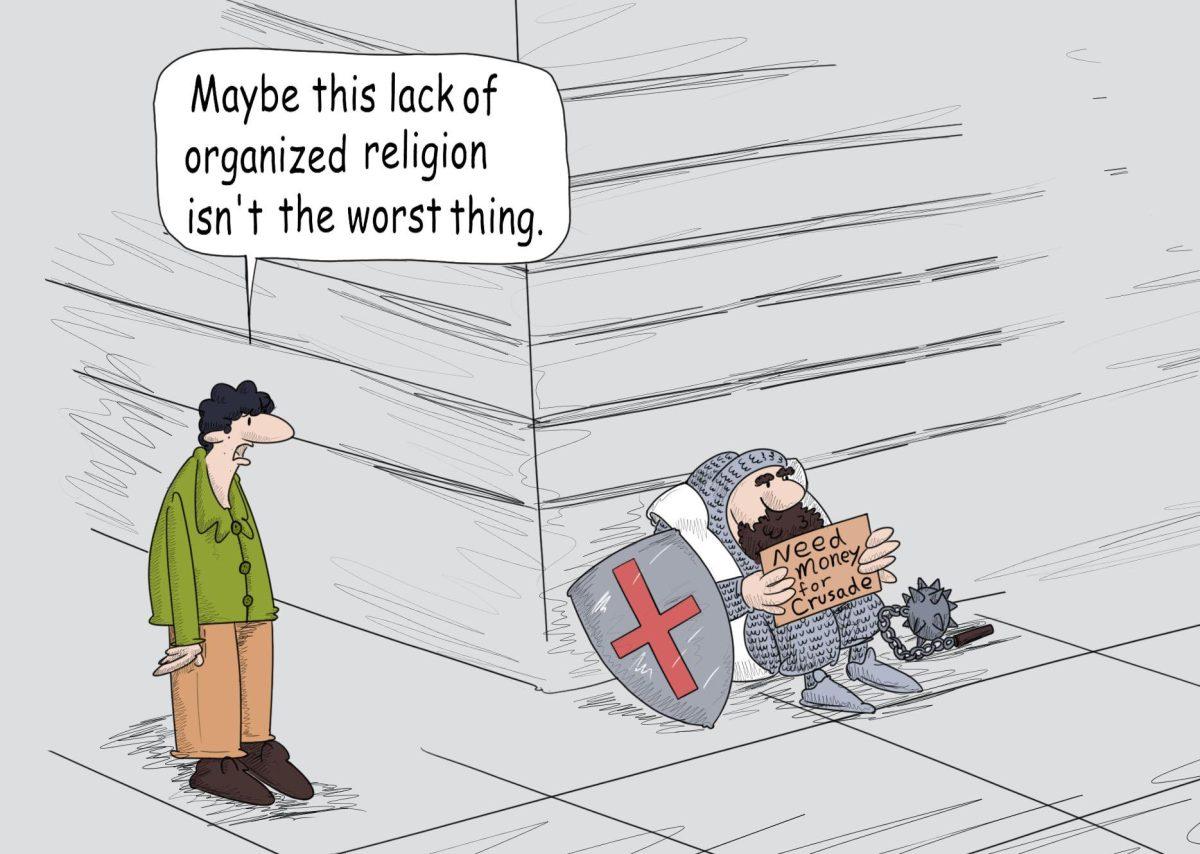The first records of organized religion were written over 15,000 years ago, dated around the 15th century BC. Religion has been a cultural component of countless states, countries and empires; the norm for humankind during the last few thousand years.
Traditional religious organizations have been losing power and influence for decades. Countless scandals have arisen from every major religion throughout their history.
Catholic and Protestant clergy have been complicit in the abuse of children. Islamic leaders have used religion to create totalitarian societies. Hindi leaders contributed and supported the caste system and have had issues with Hindu nationalism being used as an excuse to persecute other religions.
College students and young adults across the country were raised in a world where religious organizations were far from flawless representations of God. We saw a world where the church, the clergy and the followers were not everything they are supposed to be.
Now, people across the world are not participating and associating with organized religion at the same rate as previous generations. Young people have especially been one of the fastest declining demographics for religious participation. A 2018 Pew report stated, “Young adults around the world are less religious.”
In over 40 countries, young adults are less affiliated with religion than older adults. It is an international phenomenon that young people are simply less religious than at any other point in our recorded history.
At the University, religious groups are prominent and thriving, but they certainly look different from those religious records found in the 15th century. The young adults of today express spirituality in a different way than previous generations did.
I asked three LSU students from various religious backgrounds to speak about their experience with the religion they identify with, where they stand with it and why they may have shifted away. One of them, a junior who identified as Muslim, said that after leaving home, they didn’t feel the need to go to mosque, instead preferring to pray alone.
Another, a Christian student, said they only went to church to please their grandmother, and that they felt no personal connection to the religion. One Jewish student said they rarely go to the synagogue on campus, though they still pray and read scripture.
The younger generations are expressing their spirituality in different ways than those who came before. People aren’t participating in religious organizations across the world and I think that same trend can be seen at the University.
Organized religion is not inherently bad. Members of religious organizations find solace and community with fellow believers. Religious groups across campus can be found, with ecstatic members hoping to invite you to their next meeting. Don’t be afraid to go.
Organizations across our campus, city and world contribute to the greater good. These organizations have been a part of our culture for centuries and they are not going anywhere soon. But the world around them is changing.
People are still spiritual but they have chosen to express it in forms that differ from our parents, in ways that are more individual. And that isn’t really a bad thing.
I still go to church. I was raised in the pews of church growing up, and I still find myself appreciating the sense of religious community. I don’t make it to a service every Sunday, but I always enjoy the time dedicated to worship.
I see the international trend of shying away from organized religion in my own life too. I find it harder to trust in the structures that define the church after seeing such institutional neglect and malfeasance. I understand why people are walking away to find something for themselves.
The world population all the way down to the University’s campus is shifting away from the religious practices of our parents and previous generations. The future of religion and spirituality will look different than our past.
Cory Koch is a 20-year-old political science junior from Alexandria, Louisiana.
Opinion: The way college students practice religion is changing, shifting away from organized structure
By Cory Koch
February 10, 2020
Crusades cartoon







